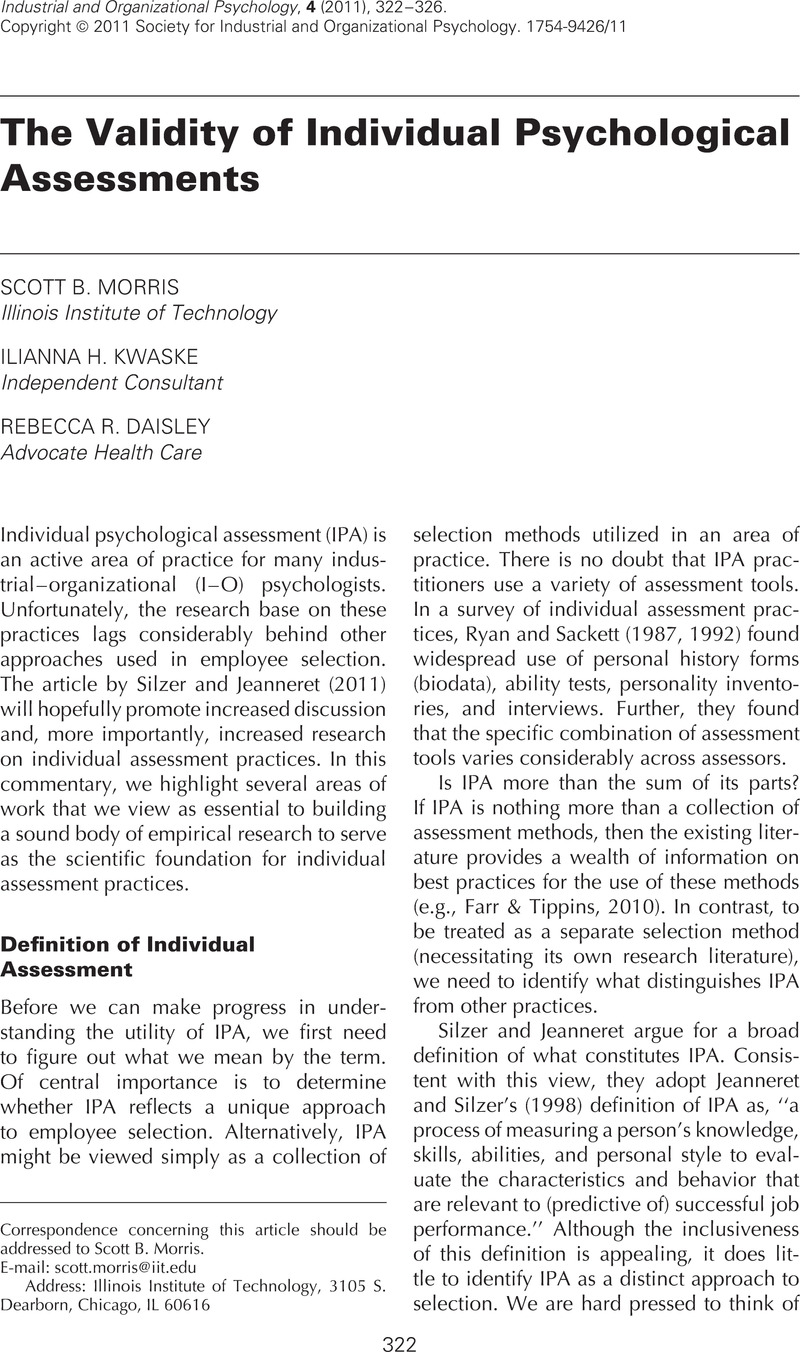Crossref Citations
This article has been cited by the following publications. This list is generated based on data provided by Crossref.
Jeanneret, Richard
and
Silzer, Rob
2011.
Individual Psychological Assessment: A Core Competency for Industrial–Organizational Psychology.
Industrial and Organizational Psychology,
Vol. 4,
Issue. 3,
p.
342.
Weldon, Paul T.
Fletcher, Clive
and
MacIver, Rab
2017.
The predictive validity of individual psychological assessments in selecting UK public sector senior managers.
International Journal of Selection and Assessment,
Vol. 25,
Issue. 1,
p.
11.
Zuo, Tianming
Sun, Baozhi
Guan, Xu
Zheng, Bin
and
Qu, Bo
2021.
Evidence of Construct Validity of Computer-Based Tests for Clinical Reasoning: Instrument Validation Study.
JMIR Serious Games,
Vol. 9,
Issue. 4,
p.
e17670.



